
Phone: 86-10-62791049
Email: guoxiaohuan @ tsinghua.edu.cn
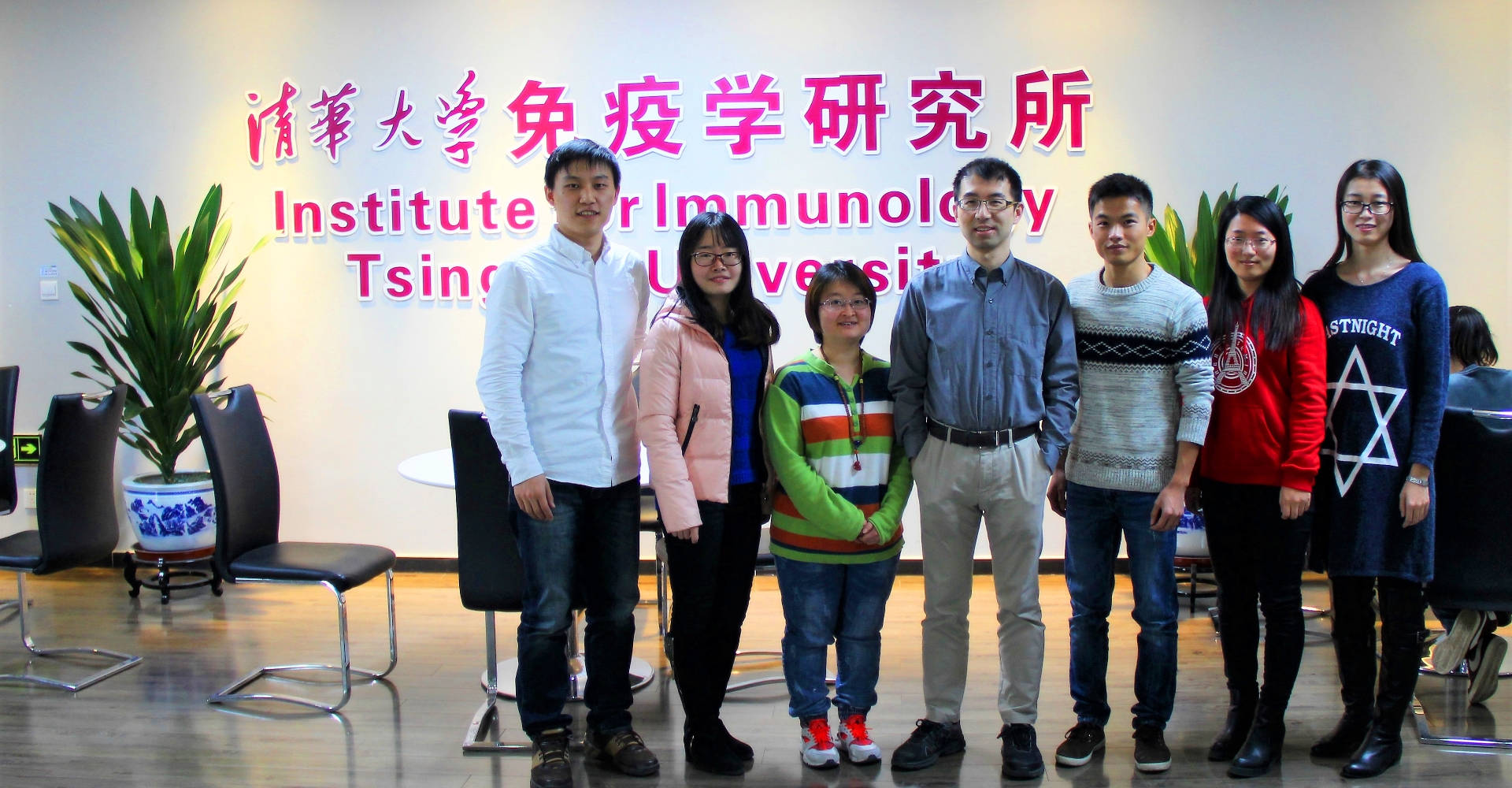
The Laboratory of Xiaohuan Guo
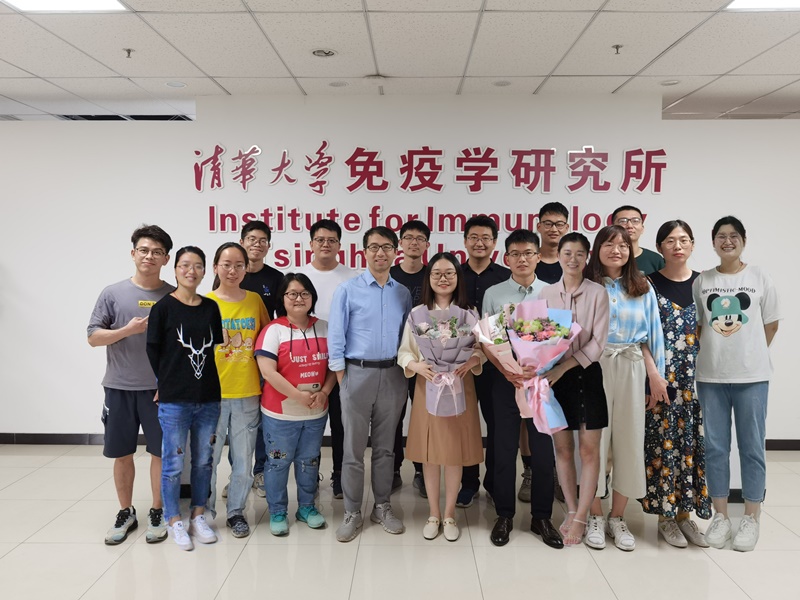
Xiaohuan Guo, Ph.D.
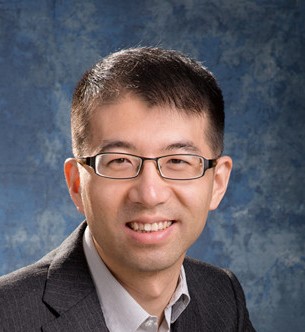
Xiaohuan Guo received his Bachelor of Medicine degree and Ph.D. degree in immunology from Peking University. Following his postdoctoral training in immunology at the University of Chicago, he was recruited to Tsinghua University as an Assistant Professor in 2015. Currently he is an Associate Professor at Institute for Immunology, Tsinghua University. His research has been focused on the regulation of mucosal immunity and gut microbiota homeostasis, especially gut-enriched group 3 innate lymphoid cell (ILC3). His lab has identified several key factors in regulating ILC3 development and function, found several novel roles and mechanisms of ILC3 in mucosal homeostasis and various diseases, discovered the important role of gut microbiota and their metabolites in the intestinal infectious and inflammatory diseases and also the efficacy of anti-tumor therapies. He has published over 30 papers including corresponding-author research articles in journals such as inImmunity, Cell Metabolism, Science Bulletinand Cell Reports.
Students
Jiacheng Hao
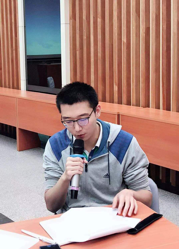
Jiacheng Hao, Ph.D candidate (from 2016) in the School of Life Sciences. Research focus: the development and function of Group 3 innate lymphoid cells.
Ning Hao
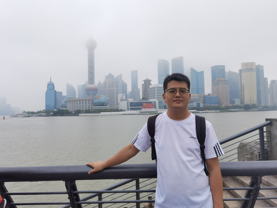
Ning Hao, Ph.D student(from 2018) in the school of medicine. I got Bachelor’s degree from North China University of Science and Technology and master’s degree from Academy of Military Medical Sciences. I like running and watching anime. My research focus on the function and mechanism of ILC3s in radiation enteritis.
Jida Huang

Jida Huang,my hometown is Zhangzhou, Fujian. In June 2016, I received my Bachelor degree of life science. In Sept. 2016, I started my PhD training at IITU. My research focus on post-transcriptional regulation of ILC3s’ function molecules. My hobbits are badminton and running.
Na Li
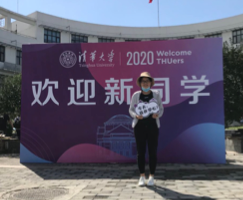
Hometown:Rizhao, Shandong
Email:n-li20@mails.tsinghua.edu.cn
Education:
2015.09-2020.06 (Bachelor of science)
Southern Medical university Basic Medicine
2020.08-Now (PhD candidate)
School of Medicine, Tsinghua University Basic Medicine
Research: gut microbiota-host interaction
Panwei Song
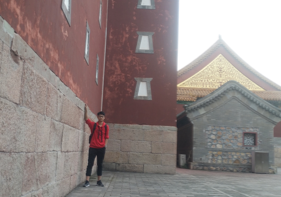
Panwei Song, received his bachelor's degree from Shandong University. He is focused in studying intestinal homeostasis and tumor immunotherapy.
Yueyuan Xu

Yueyuan Xu, student of medical experimental class of 2017——a medical student learning how to do scientific research.
Hongkai Xu
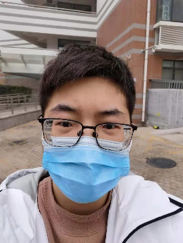
Hometown:Jiangsu Province
Education:
2013.09-2017.06 (Bachelor of science)
Jilin university
2017.08-Now (PhD candidate)
School of Medicine, Tsinghua University
Jing Zhang
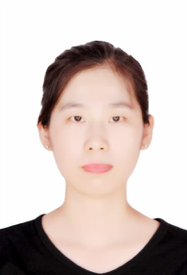
Jing Zhang, PhD student in School of Medicine, joined Dr Guo lab in 2017. I got bachelor degree from Huazhong Agricultural University. Research foucs: The Wnt signaling’s role in regulating the development of CD8+ T cell exhaustion.
Jie Zhao
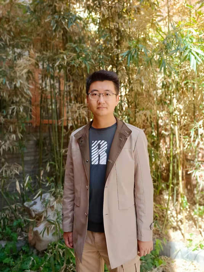
Jie Zhao, comes from Baotou, Inner Mongolia, graduated from the College of biological, China Agricultural University and got a bachelor's degree. He Joined the Xiaohuan Guo’s Lab in 2018 as a PhD student and studies mucosal Immunology until now. He mainly focuses on the intestinal ILC3s and the regulatory mechanisms on their development and function, trying to dig up new knowledge and any clues on therapies development.
Xin Zhang

Hometown: Laiwu city, Shandong Province
Education:
2016.08-2020.06 Bachelor of science
School of pharmacological sciences, Tsinghua university
2021.09-now Ph.D candidate
School of life sciences, Tsinghua University
Xin zhang come from Shandong province. She received the Bachelor’s degree of science in college of pharmacological science of Tsinghua University in 2020, and then joined Guo lab, starting ph.D training in September 2021.
Lab Alumni
United Front Work Department of CPC in Mongolia Autonomous Region.
Beijing Institute of Biological Products CO., LTD
Tsinghua university
Pending
Pending
Mucosal immunology
The gut mucosal immune system not only protects us from numerous pathogen invasion, but also maintains the homeostasis with commensal bacteria and innocuous food antigens. The failure of gut homeostasis not only increases the risk of gut infection, inflammatory bowel disease, but is also related to allergy, cancer, autoimmune, and metabolic diseases. Our lab’s goal is to combine molecular data with in vivo models to further the understanding of mechanisms underlying these homeostatic and pathological conditions and aid in the development of treatments for these gut related diseases.
1. The development and function of innate lymphoid cells.
2. The interaction between innate lymphoid cells, other cells and microbiota for gut homeostasis.
3. The role of mucosal immunity and microbiota in various diseases.
4. Immunotherapy based on the mucosal immunology.
Recent research
1. Gut microbial metabolites facilitate anticancer therapy efficacy by modulating cytotoxic CD8+ T cell immunity.
Recently, a series of studies demonstrate that gut microbiome could modulate the efficacy of anti-tumor therapy by shaping host immunity in various mouse models and human patients. However, it is still not clear how gut microbiota regulates distal anti-tumor immunity and promotes the therapeutic efficacy. Through re-supplementation of the gut microbial metabolites to the antibiotics-treated mice, we prove that intestinal microbiota could promote the anti-tumor immune response and chemotherapy efficacy through their metabolites. By a combination of metabolomics analysis, in vitro screening and in vivo experiment, SCFA butyrate is found to be the key gut microbial metabolite and could directly boost anti-tumor CD8+ T cell response. Butyrate supplementation could improve the efficacy of chemo- and immuno-therapies in various tumor models. We further show that the promising effect of butyrate on cytotoxic CD8+ T cell requires ID2, which is highly expressed by tumor-infiltrating CD8+ T cells and could be induced by butyrate via epigenetic regulation. We also provide definitive evidence that ID2 promotes the cytotoxic function and proliferation of CD8+ T cells through regulating IL-12 signaling. Finally, we also find that the amount of butyrate may be positively correlated with the chemotherapy efficacy in cancer patients, and butyrate could also increase ID2 expression and function of human CD8+ T cells. Together, our findings suggest that the gut microbial metabolite butyrate could promote anti-tumor therapeutic efficacy through the ID2-dependent regulation of CD8+ T cell immunity, indicating that gut microbial metabolites could be effective as a part of cancer therapy. This work has been published in Cell Metabolism in 2021.
2. The interactions between Lymphoid tissue inducer-like cells and T cells in the mLN restrains the intestinal humoral immunity.
The adaptive humoral immunity is important for human health. Impaired antibodies production will lead to infectious diseases, while over-activated immune responses could cause autoimmune or allergy responses. Thus, it is very critical to precisely regulating the level of immune response. LTi-like cells is one subpopulation of ILC3s and mainly locates in various lymphoid and mucosal tissues. LTi / LTi-like cells is not only critical for the generation of lymphoid structures, but also actively interacts with T cells and regulate the adaptive immunity. Recent studies show that intestinal LTi-like cells express MHC-II, but lack of co-stimulatory molecules, thus could suppress T cells and antibody responses to maintain the intestine homeostasis. However, MHC-II+ LTi-like cells in the spleen could up-regulate the expression of CD80 and CD86 post immunization, and promote T cell activation and antibody production. These inconsistent results indicate that the manner of crosstalk between LTi-like cells and adaptive immune cells varies among tissues, and the precise regulation mechanisms need to be further determined. Through RNAseq analysis, we found that LTi-like cells from different tissues displayed the transcriptome heterogeneity, especially in the mLN and intestine: 1) For their maintenance, RANK signaling is critical for the mLN LTi-like cell, while IL-7R signaling is required for the intestinal LTi-like cell; 2) For their function, LTi-like cells resident in the mLN but not intestinal lamina propria express high level of MHC-II and PD-L1, which could suppress the development of T follicular helper cells and humoral responses during intestinal infection, while LTi-like cell in the gut could produce effector cytokines such as IL-22 to maintain gut homeostasis; 3) For their regulation mechanism, more post-transcriptional regulation mechanisms are involved in the mLN LTi-like cell, while the regulation of intestinal LTi-like cell might occurs more frequently at the transcription level. Interestingly, ID2 could participate in the regulation of this heterogeneity of LTi-like cell. ID2 deficiency in ILC3 leads to decreased ILC3 in the gut, but increased LTi-like cell in the mLN due to enhanced RANK signaling. Furthermore, although ID2 negatively regulates the maintenance of LTi-like cell in the mLN, ID2 is essential for mesenteric LTi-like cell’s suppressive effect on PD-1+ Tfh cells through regulating PD-L1 expression at translation level. In summary, our data illustrate the heterogeneity of LTi-like cell and complex interaction between LTi-like cell and T cell in the mLN in an ID2-regulated manner. CD4+ T cell provides RANKL to maintain LTi-like cell in the mLN, in turn, LTi-like cell properly controls Tfh and B cell response through PD-L1 post intestinal immunization. LTi-like cell in the mLN may serve as a gatekeeper for precisely regulating the adaptive humoral immunity, to avoid autoimmune or food allergy response in the intestine area. This work has been published in Cell Reports in 2020.
3. The Impaired Development of Innate Lymphoid Cells by Preterm Birth Is Associated with the Infant Disease.
The human ILCs has been extensively investigated for many years and could be found in various tissues in different diseases, such as ILC1s and ILC3s in the inflamed intestinal tissues and tonsils, and ILC2s in the allergic skin and lung. All the ILCs and the ILCPs could also be found in the adult peripheral blood and might be correlative to different diseases. However, ILCs in the children has been barely concerned. The immune system is shaped critically in the early life, especially when born preterm. Although the development of immune system in the preterm children has been extensively discussed, it is still unknown whether the development of ILCs is influenced by the preterm birth. To clarify the development of ILCs in the preterm children, we collaborated with the Peking University the 3rd Hospital and enrolled 103 infants born since 2018. We found that all the ILCs including ILC1s, ILC2s and ILC3s showed a significant reduction in the peripheral blood of the preterm children compared with the term children. Furthermore, compared with the ILC progenitor (ILCP) from the term children, the ILCPs from the preterm children developed much less ILCs in vitro, indicating that the ILCs development ability was indeed influenced by the preterm delivery. Consistent to the impaired ILCs development in the preterm children, we also found that the cytokine production, including ILC1-related IFNγ and TNFα, ILC2-related IL-5 and IL-13, ILC3-related IL17A and IL-22, were also down-regulated in the preterm children. We further found that ILC3s and ILC1s are negatively correlative to the incidence of diagnosed respiratory tract infections (including upper respiratory tract infection, bronchitis, pneumonia and laryngitis), while ILC2s are positively correlative to the atopic eczema. In summary, our data shows that the termed pregnancy is essential for the development of ILCs in the infants, which could influence the incidence of respiratory tract infections and eczema in the early life of children. This work has been published in Science Bulletin in 2021.
Key Words
Mucosal Immunology, Innate Lymphoid Cells, Gut Microbiota, Gut Homeostasis
ORCID: 0000-0001-5152-3010
Researcher ID: I-3710-2017
Selected Publications
1. Yao He#, Liuhui Fu#, Yiping Li, Wenyan Wang, Mingli Gong, Jing Zhang, Xin Dong, Jiaoyan Huang, Quanbo Wang, Charles R. Mackay, Yang-Xin Fu, Yun Chen, Xiaohuan Guo*. Gut microbial metabolites facilitate anticancer therapy efficacy by modulating cytotoxic CD8+ T cell immunity. Cell Metabolism. (2021) 33(5): 988–1000.
2. Wenyan Wang#, Yan Xing#, Yanmei Chang, Ying Wang, Yanxia You, Zekun Chen, Defu Ma*, Xiaomei Tong*, Xiaohuan Guo*. The Impaired Development of Innate Lymphoid Cells by Preterm Birth Is Associated with the Infant Disease. Science Bulletin. (2021) 66: 421-424.
3. Wenyan Wang*, Yiping Li, Xiaohuan Guo*. A Mouse Model of Citrobacter rodentium Oral Infection and Evaluation of Innate and Adaptive Immune Responses. STAR Protocols. (2020) 1(3):100218.
4. Wenyan Wang#, Yiping Li#, Jiacheng Hao, Yao He, Xin Dong, Yang-Xin Fu, Xiaohuan Guo*. The Interaction between Lymphoid Tissue Inducer-Like Cells and T Cells in the mLN Restrains Intestinal Humoral Immunity. Cell Reports. (2020) 32(3): 107936.
5. Xiaohuan Guo*, Yang-Xin Fu*. The tragic fate of group 3 innate lymphoid cells during HIV-1 infection. J Clin Invest. (2015) 125(9):3430-2
6. Xiaohuan Guo*, Yong Liang, Yuan Zhang, Anna Lasorella, Barbara L. Kee, Yang-Xin Fu*. Innate Lymphoid Cells Control Early Colonization Resistance against Intestinal Pathogens through ID2−Dependent Regulation of Microbiota. Immunity. (2015) 42(1): 731–743.
7. Xiaohuan Guo, Ju Qiu, Tony Tu, Xuanming Yang, Liufu Deng, Robert A. Anders, Liang Zhou*, Yang-Xin Fu*. Induction of Innate Lymphoid Cell-Derived Interleukin-22 by the Transcription Factor STAT3 Mediates Protection against Intestinal Infection. Immunity. (2014) 40(1): 25–39

Copyright © 2017 Institute for Immunology Tsinghua University
Contact Address: Room D302, Medical Science Building, Tsinghua University, Beijing 100084, China
Tel: (86) 10-62776420 Fax: (86) 10-62776420
